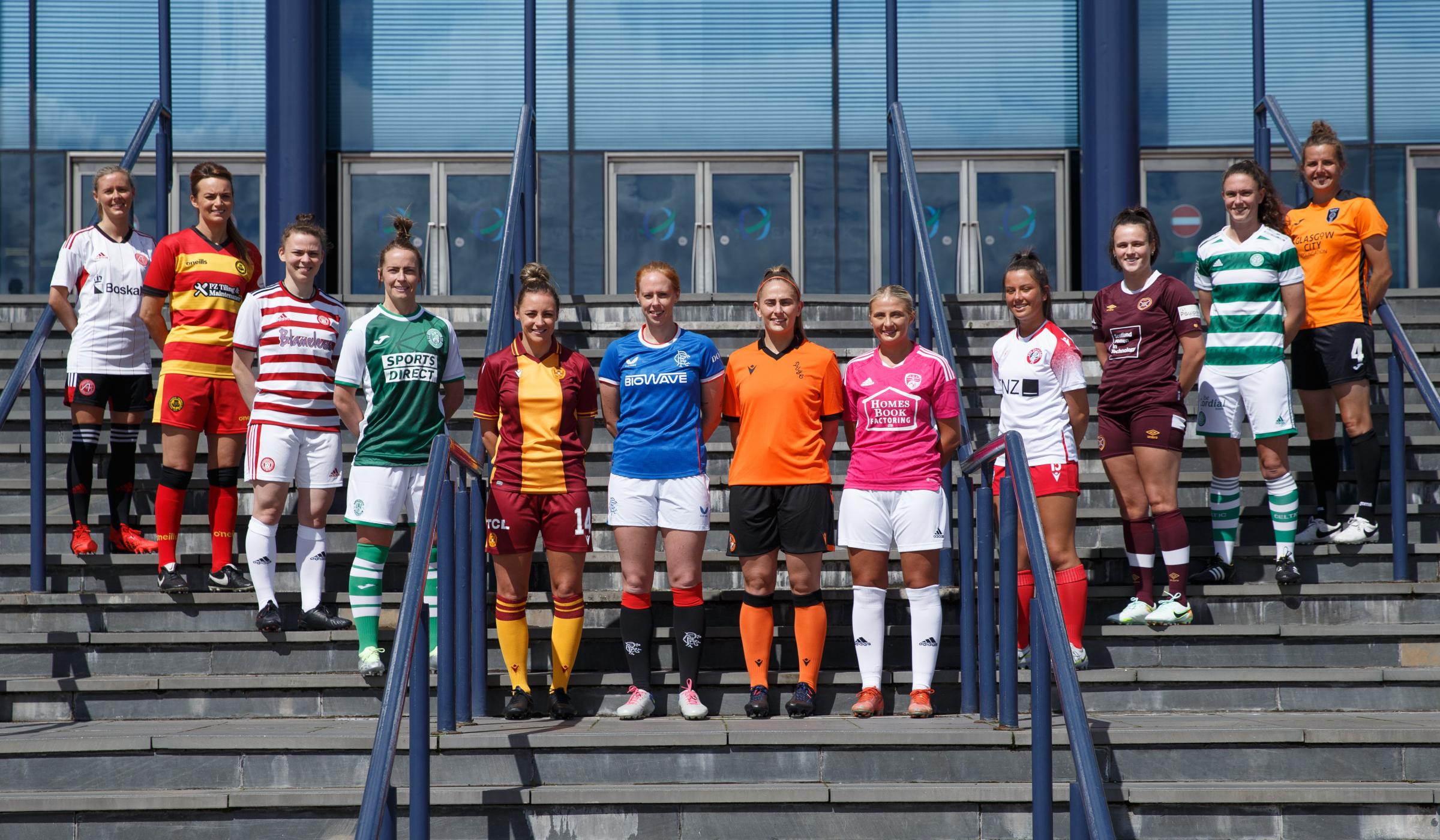
A NEW era for women's football in Scotland starts today with the opening round of SWPL fixtures. The obvious target for the new league set-up is to build on the huge success of the Euros and provide a sustainable platform for professional football.
A launch day at Hampden on Thursday followed the announcement by the Scottish FA that they are taking over the running of the Scottish Cup. It's a move that was flagged up here a fortnight ago, and enables Scottish Women's Football to commit all their resources to growing the grassroots and performance pyramid beneath the top 20 teams.
Given that those clubs voted to leave SWF and move to the SPFL largely because it offered the prospect of more commercial income, it is a matter of obvious concern that there is no sponsor, or even website, in place ahead of today's opening league games. However, managing director Fiona McIntyre said on Thursday that those issues will be resolved very soon, along with clarification of the broadcasting arrangements.
Today's match of the day, between Celtic and Hibernian, will be screened live on BBC Alba. Both sides have lost a number of influential players over the summer, with confirmation arriving on Friday that last season's top SWPL scorer Charlie Wellings has left Celtic to join WSL side Reading.
Five influential players from last season's double cup-winning side are no longer available to Fran Alonso. The same is true of three big performers at Hibs, with the additional penalty that they have moved to the teams which finished above them in May. Today offers the opportunity to assess both clubs' replacements.
Just about the most consistent feature of the league has been Joelle Murray captaining Hibs, and she will again be wearing the armband she inherited from Laura Kennedy in 2009. Celtic will have Kelly Clark as captain for a sixth successive season.
By comparison, Kathryn Hill, who like Murray and Clark is a central defender, only learned on Wednesday that she will be Rangers' new on-field leader. She admits she was taken by surprise, having signed from Championship side Durham at the start of last month.
The 27-year-old, though, is in her second stint at the club and was in the side which finished league runners-up in 2014, edging Hibs out on goal difference. That was the club's best ever finish until Rangers ended Glasgow City's domination last season.
The head coach at the time was Angie Hind, who also had a spell as Anna Signeul's Scotland assistant. “She moved to Old Dominion University (in Virgina),” Hill recalls. “I followed her over and learned a lot in my two and a half years there.”
And Another Thing
REGULAR readers will know I'm not a huge fan of the Football Association's director of women's football, Sue Campbell. Or, as she is deferred to in the House of Lords, The Baroness Campbell of Loughborough.
Campbell is the driving force behind the dangerous nonsense of a continuing “Team GB” women's football side. She is a former chair of UK Sport and oversaw a period when – thanks to the advent of national lottery funding – Britain rose from being also rans to a significant Olympics player. Money usually buys success in sport.
Having joined the FA in 2016, Campbell did nothing to acknowledge the trailblazers of women's football. Members of the England team which beat Scotland in the first official international between the sides in 1972 were forced to point out during the Euros that they are still awaiting retrospective caps.
However, having said all that, England's tournament win owes a great deal to Campbell's understanding of how high-performance sport works. As with the Olympics she had financial resources available to her which most other countries can only dream about, but appointing Sarina Wiegman as head coach was a shrewd move and it all came together during a month of unforgettable achievement and record breaking.
England were second best at the start of their games against Spain and Sweden, and also in the second half against Germany last Sunday. But they had the fortitude and defensive strength to concede just two goals in these three knockout stage games, while scoring eight – many of a high quality – themselves.
Congratulations to England, but everybody is a winner as the tournament was a triumph for women's football. It is now becoming normal to expect women match officials, women commentators and pundits, and, increasingly, women head coaches.
On the pitch standards are accelerating. Professionalism is still at the nascent stage, but as it becomes the norm for more and more players the sport will continue to rise in stature and popularity.







